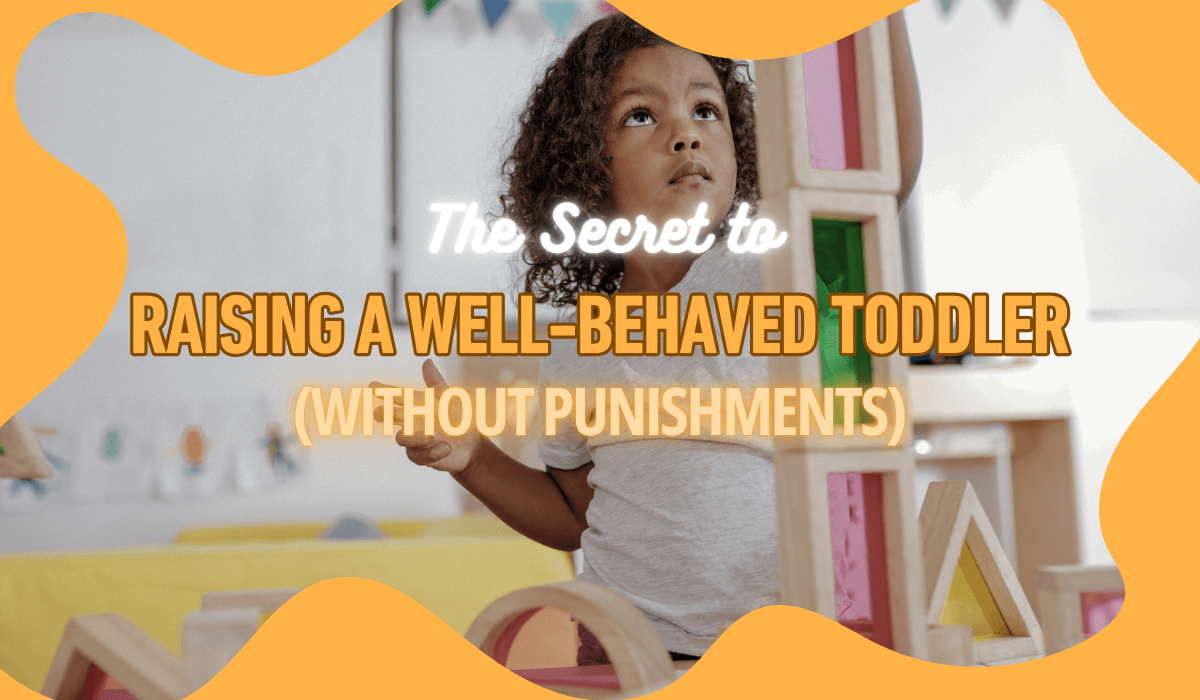Let’s talk about the toddler years—the time when your sweet little angel can go from smiling at you one second to throwing a full-on tantrum the next. Parenting toddlers is not for the faint of heart, and the challenge is real. But what if I told you that it’s possible to raise a well-behaved toddler without the need for constant punishments or power struggles?
Sounds too good to be true, right? Well, hear me out. 🙌
I used to think that disciplining toddlers meant constant yelling and “time-outs” when things didn’t go as planned. But then, I started experimenting with a different approach, and guess what? It made a huge difference—not just in my toddler's behavior but in my own sanity too. It turns out, raising a well-behaved toddler doesn’t have to mean power struggles, bribes, or punishment. It’s all about connection, consistency, and understanding their needs.
In this post, I’ll share the secrets to raising a well-behaved toddler without relying on punishments. 🌟 Let’s dive in.
1. Set Clear Expectations from the Start
A lot of toddler tantrums happen because they don’t fully understand what’s expected of them. At this age, toddlers are still figuring out the world, and without clear expectations, they can quickly become frustrated.
How to Do It:
- Use simple language: Keep your instructions short and clear, like “Please sit down” or “Put your shoes on.”
- Be consistent: If you tell your toddler no jumping on the furniture one day, make sure you follow through every day.
- Model the behavior: Show them what you want them to do. If you want them to pick up toys, show them how to do it step by step.
2. Redirect Instead of Punishing
Punishments might stop bad behavior temporarily, but they don’t teach your toddler what they should be doing instead. Redirection, on the other hand, teaches them a new behavior to replace the one that’s not working.
How to Do It:
- Offer alternatives: If your toddler is about to throw their food, offer them a safe, alternative activity like a toy or a book.
- Distract and engage: Redirect their attention when they’re starting to act out. For example, “Let’s play with this ball instead of throwing your snack.”
- Use humor: Sometimes, being playful can help break up the tension and redirect your toddler’s attention. They might be mad, but a silly face or funny voice could change the mood.
3. Understand Their Emotions
One of the biggest reasons toddlers act out is because they don’t yet have the words to express their feelings. Frustration, hunger, tiredness, and overstimulation can all lead to meltdowns. When you understand why your toddler is upset, you can respond in a way that calms them down without punishment.
How to Do It:
- Validate their feelings: Instead of telling them, “Don’t cry,” try, “I see you’re upset. Let’s take a deep breath together.”
- Label their emotions: Toddlers are still learning what their emotions are. By labeling their feelings, you help them understand what they’re experiencing. For example, “You’re angry because you can’t have the toy right now.”
- Offer comfort: Sometimes, all they need is a hug, a reassuring word, or a few minutes to calm down.
4. Use Positive Reinforcement
Positive reinforcement helps your toddler understand what they should be doing. Praise them for good behavior, and they'll want to keep doing it. Praise can be as simple as a “Great job!” or a high five.
How to Do It:
- Catch them being good: Praise your toddler when they do something right, like putting their toys away or using their inside voice.
- Use rewards sparingly: Offering a sticker, extra playtime, or another small reward can be a good motivator. But the key is not to over-rely on material rewards.
- Praise effort, not just results: Even if your toddler isn’t perfect, praise their effort. For example, “I love how hard you tried to put your shoes on by yourself!”
5. Create a Calm and Predictable Environment
Toddlers thrive on routine. When they know what to expect, they feel more secure, which can lead to less frustration and fewer tantrums. A predictable environment makes it easier for them to make choices, know what comes next, and stay calm.
How to Do It:
- Establish routines: Have set times for meals, naps, and bedtime. Predictable routines help toddlers feel more secure and reduce anxiety.
- Create a calm space: Designate a quiet area for your toddler to retreat to when they’re feeling overwhelmed.
- Limit transitions: Transitions can be tough for toddlers. Give them plenty of warning when it’s time to switch activities or leave a place they enjoy.
Key Takeaways
- Clear expectations help toddlers understand what’s expected of them and prevent frustration.
- Redirection teaches toddlers positive behaviors instead of punishing them for misbehaving.
- Understanding emotions allows you to empathize and respond in a way that calms your toddler without punishment.
- Positive reinforcement encourages good behavior and boosts their confidence.
- Routine and predictability create a sense of security, reducing stress and tantrums.
Final Thoughts:
Raising a well-behaved toddler without relying on punishments is all about understanding their needs, setting clear expectations, and using positive methods of guidance. Parenting is a journey, and while it’s not always easy, it’s important to remember that your toddler is learning and growing right alongside you. Keep showing up with patience, consistency, and love, and you’ll both thrive in this stage of development. 💕✨


